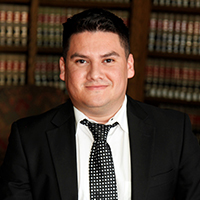SWLAW Blog | Diversity

August 4, 2020
Thoughts on the 2020 ABA Annual Conference: Convening for Justice
by Abraham Bran, SBA President
T his year I had the opportunity to represent Southwestern at the ABA annual conference through my role as SBA President. While I did not get to travel to Chicago where the conference was supposed to be held, I did have the opportunity to join their first Virtual Conference, and I have to say, it wasn’t as bad as I thought it would be. Originally, I thought: How am I going to network and meet other people via zoom? That’s awkward. But as the conference progressed and everyone started to step out of their discomfort, I did too.
his year I had the opportunity to represent Southwestern at the ABA annual conference through my role as SBA President. While I did not get to travel to Chicago where the conference was supposed to be held, I did have the opportunity to join their first Virtual Conference, and I have to say, it wasn’t as bad as I thought it would be. Originally, I thought: How am I going to network and meet other people via zoom? That’s awkward. But as the conference progressed and everyone started to step out of their discomfort, I did too.
A great benefit of being virtual this year, was that I was able to comfortably sit through many different webinars and moderated conversations on a variety of issues under the umbrella of social justice. I went to panels on women and gender rights, environmental justice, police misconduct, and due process considerations in the use of online court systems, to name a few.
Overall, one consistent theme perpetuated the conversations: we are proud of the progress that our nation has made on some of the issues, but it is clear that we are far from equal protection under the law. Chai Feldblum, former Equal Employment Opportunity Commissioner and passionate LGBTQ+ rights activist, led a conversation about the recent United States Supreme Court decision prohibiting sexual orientation and identity discrimination in the workplace under Title VII. She explained that this decision will be instrumental in the future of LGBTQ+ protections in areas such as housing and education, and that the fight continues. The conference featured many domestic and international human rights advocates, like Feldblum, who have devoted their lives to building a better and more equitable future. One particular anecdote stood apart from the rest, and I am writing to you to share it.
In a conversation titled “Shortlisted: Women in the Shadows of the Supreme Court,” titled after the book by Renee K. Jefferson and Hannah B. Johnson, the authors discussed the lives and careers of nine women who were shortlisted to become Justices of the United States Supreme Court before Justice Sandra Day O’Connor became the first woman on the court in 1981. One of these women, Florence Allen, was an Ohio Supreme Court Judge from 1923-1934, making her the first female judge on a State Supreme Court, and was nominated by President Roosevelt to serve on the Sixth Circuit Court of Appeals in 1934. She was only one of two women to serve as a federal judge at the time, and as such, the Sixth Circuit courthouse had to be reimagined and redesigned just so that she would have a bathroom in the office. Her male colleagues also frequently went to lunch at their local golf club without her because the club closed its doors to women.
Forty-five years later, Cornelia Kennedy, another person shortlisted before Justice O’Connor, presided on the Sixth Circuit Court of Appeals and used Judge Allen’s office. While Judge Kennedy was allowed to join the boys at the golf club now, she nevertheless kept the hotplate Judge Allen used to heat her lunches as a reminder of what life was like.
This metaphorical passing of the baton from one generation to another is critical in the pursuit of social justice and equity. We must never forget those who came before us and made waves for us. We must remember and admire those who laid their lives down for us so that we could be freer. We must also remember that the fight for social change may not be completed in our lifetimes, but we must persist because our children and their children deserve a more equitable and just future.
